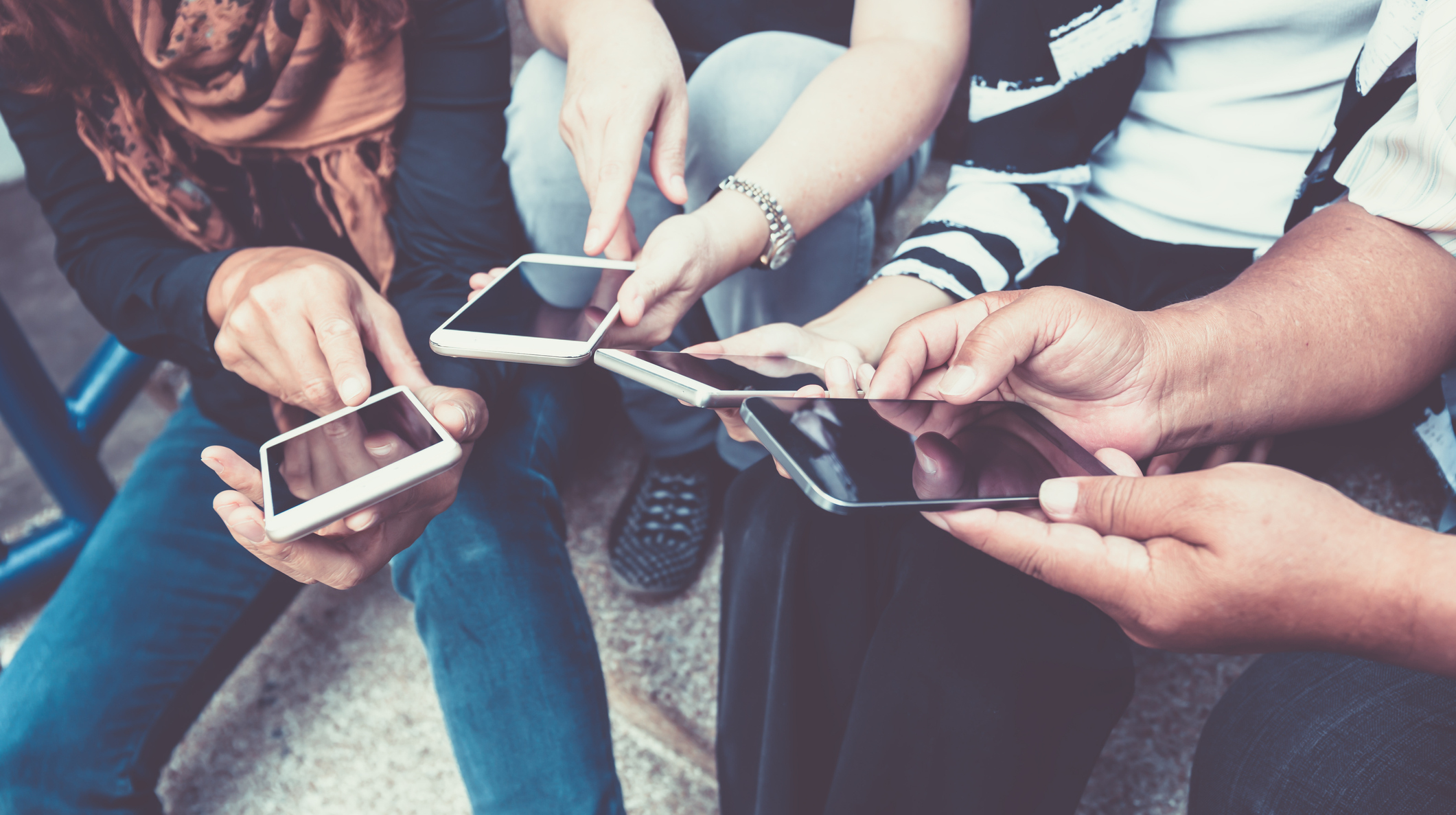Students Would Rather Be Reunited With Their Phones Than Eat
"Kids these days," I muse, rocking in my front-porch wicker glider, puffing a corn-cob pipe and yelling at clouds. "They're just on their dang phones all the time. In my day, we amused ourselves with hoop rolling and guessing who'd get cholera next."
I'm not that old, but people of any age can find constant phone use annoying. Society has even used the word "addiction" to refer to this digitally tethered behavior, but evidence on how strongly cell phones dictate our behavior is still developing. So researchers at the University Of Buffalo posed the thus-far-unasked question in a new paper published in Addictive Behaviors: Is cell phone use "reinforcing"? Or, put another way, does cell phone use beget more cell phone use? To find out, researchers compared smartphones to another highly motivating reinforcer: food.
Here's how the experiment, conducted on 76 college students, played out. Students had no access to food for three hours, and had their phones taken away for two hours, during which time they were allowed to study or read the newspaper. They were then asked to complete computer games that could earn them use of their phones, or 100-calorie servings of their favorite snack food. They were also asked how much money they would part with to gain access to phones versus food. The results: Students just wanted their phones back. (The exact numerical data isn't available online yet.)
"When deprived of both food and smartphones, students were much more motivated to work for time to use their smartphone, and were willing to part with more hypothetical money to gain access to their phone," Sara O'Donnell, the paper's lead author, says in a University Of Buffalo news release. "We knew that students would be motivated to gain access to their phones, but we were surprised that despite modest food deprivation, smartphone reinforcement far exceeded food reinforcement."
O'Donnell cautions that while this study is an early step in identifying how strongly smartphone use motivates behavior, it's not foolproof evidence of full-blown smartphone "addiction" analogous to drug or alcohol dependency. (I'd add that 100 calories of any snack food is pretty measly, just saying.)
"Research is just beginning to investigate the possibility that smartphone addiction exists," O'Donnell says. "While reinforcing value does not equate to addiction, it seems likely that if smartphone addiction becomes a valid diagnosis, those individuals would have high smartphone reinforcement, just as individuals with alcohol use disorders have high alcohol reinforcement."
